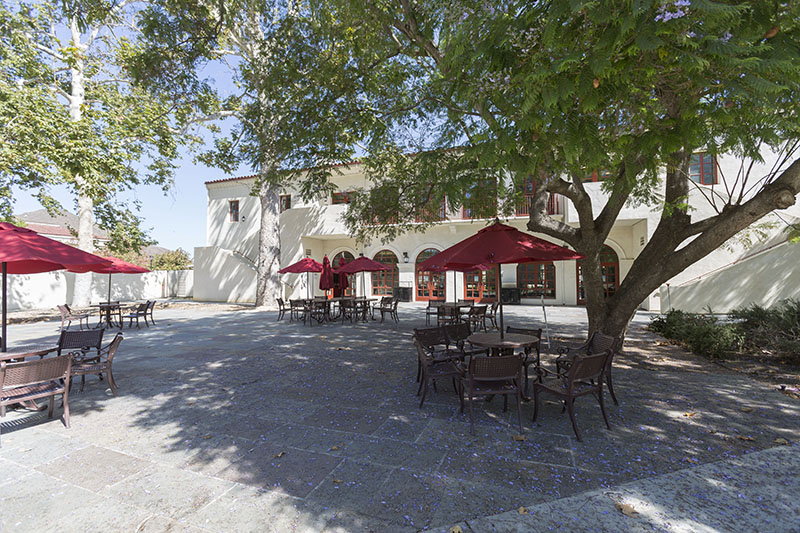
May 17, 2019 — Their earning power will increase once they receive their degrees, but while students are still attending CSU Channel Islands (CSUCI), they sometimes need help affording groceries.
So, CSUCI launched the Basic Needs Program, which helps students with food insecurity along with other basic necessities such as housing or financial burdens. To help address food insecurity, the program just received support from a $47,413 grant from CSU, Chico’s Center for Healthy Communities (CHC).
The grant’s purpose is to connect eligible students with the CalFresh Food Program, which supplies low-income students with funds to buy healthy food.
“We are pushing for a higher promotion around CalFresh so students are aware that they may be eligible,” said Basic Needs, CARE and Student Conduct Administrator Chelsee Benté. “We’ve got the Dolphin Pantry, which is important, but more of a short term fix. Assuming a student is eligible, CalFresh will link them to longterm sustainable food options.” The Dolphin Pantry exists to offer no-cost food, toiletries and basic necessities for students in need.
The CHC at CSU, Chico is one of five contractors in the state to receive an unprecedented grant through the California Department of Social Services (CDSS). The grant goes toward a three-year CalFresh Outreach (CFO) effort from Siskiyou to San Diego counties. The outreach includes five community organizations and 40 California university and college campuses, including CSUCI.
“What’s unprecedented about this CDSS contract is the sheer number of colleges and universities involved, and the complexity of the collaboration,” said Jenny Fales, the CHC’s statewide CalFresh Outreach Program Director.
Federal funding for this statewide outreach comes from the U.S. Department of Agriculture’s Supplemental Nutritional Assistance Program (SNAP), which is known as CalFresh in California.
“The idea is to reach out to college and university students, those who suffer from food insecurity, which includes students who aren’t eating enough food, and those who are eating poor-quality food,” Fales added. “In many cases, it’s both. And if students qualify for CalFresh benefits, then we help them apply.”
CalFresh at CSUCI operates the same way. To be eligible for CalFresh, a student’s monthly household income must be $1,316 or less, Benté explained.
“There are many other students who may be eligible,” Benté said. “If the student works for example, or is connected to the Educational Opportunity Program (EOP), or if they are in a foster youth program. We always tell students that if you receive financial aid, then you should consider receiving food aid in the form of CalFresh.”
Other qualifications are if a student has a Cal Grant A or B or is approved for a federal work study program, Benté said.
A Basic Needs Study commissioned by the CSU Chancellor’s Office a few years ago indicated that more than 41% of CSU students were experiencing low or very low food security. In addition, 10.9% of CSU students had experienced homelessness.
In an effort to address the housing problem for low-income students, which was often linked with food insecurity, Benté was pleased to say that CSUCI had also just received $53,110 from the Homeless Emergency Aid Program (HEAP), which is connected with Ventura County’s Continuum of Care (CoC) initiative.
The purpose of the grant is to place students in emergency housing and hotels for up to 15 nights, Benté said, adding that CSUCI should be able to roll out the program in fall 2019.
“With the cost of living in California, we have a lot of students getting to a place where they can’t afford rent. They’re living in their vehicles or in unsafe locations with no restrooms or kitchens. They may be couch-surfing.”
Students knowing they will have food and a safe place to sleep at night benefits all, Benté explained, as students will be able to concentrate on their studies, graduate on time, and join the work force to further strengthen our economy.
For more information on basic needs for students, including food and/or housing insecurity, visit: www.csuci.edu/basicneeds.
